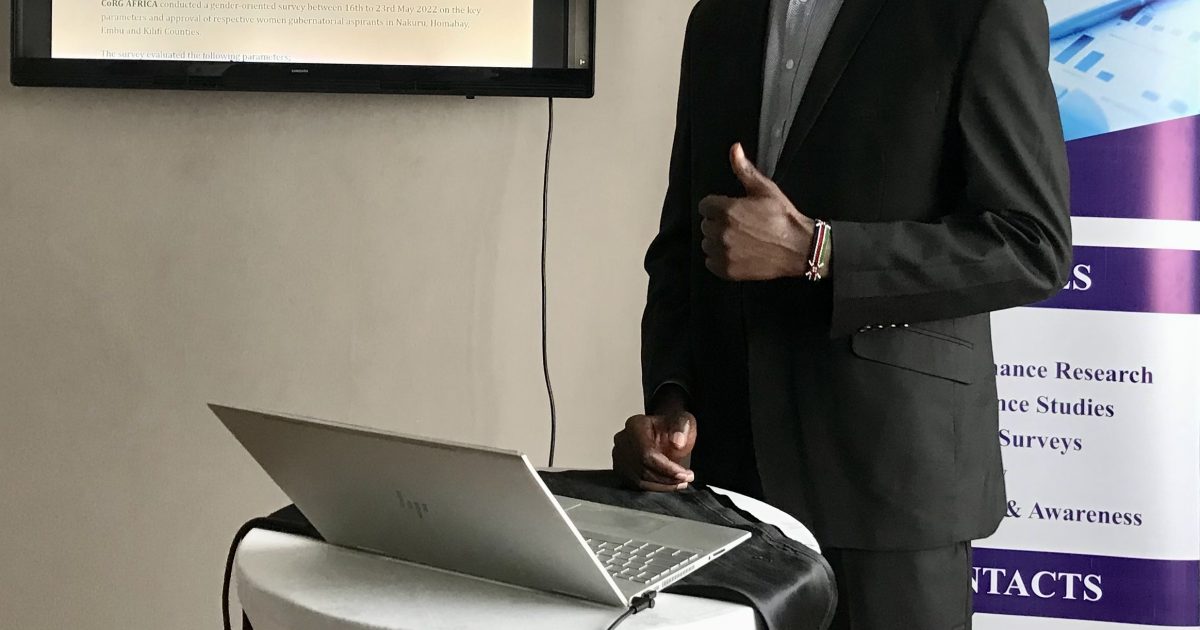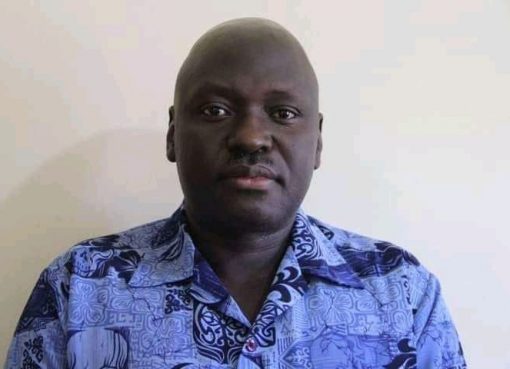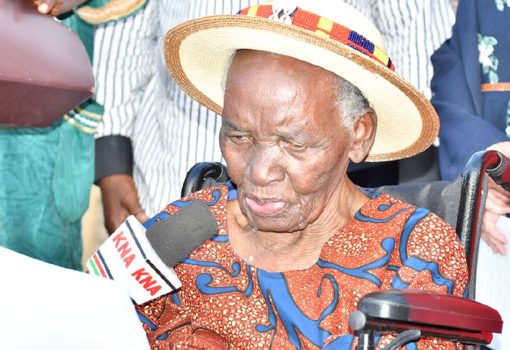Consortium of Researchers on Governance (CORG) held a quantitative survey to discover the influence that gender has on which gubernatorial aspirant is preferred in the counties of Nakuru, Homa bay, Embu and Kilifi.
Speaking on Wednesday at a Nairobi Hotel while releasing the research findings, Team leader/ Director of CORG, Charles Mc’ Olonde stated that the women aspirants in the four counties have the potential of being elected in the upcoming elections.
Looking at the factors that would influence the gubernatorial choice, out of the 2,266 people interviewed, 24.2 percent of the population would consider the political party/coalition, 19.5 percent would consider integrity of the aspirant while 18.1 percent would consider the hope and change message in the manifesto.
The interviewed individuals that would consider running mate choice and interpersonal campaign are 15.6 percent, and 11.4 percent respectively.
In the surveyed counties, the woman aspirant in Homa Bay is the preferred candidate with 57.9 percent as compared to the male aspirant 38.3 percent of the 524 interviewed individuals.
As for Nakuru, Embu and Kilifi, the female aspirants were not far behind as they are preferred by 37.5 percent, 32.6 percent and 38.7 percent of the interviewed population which are 733, 515and 494 respectively. Their male counterparts were preferred by 39.4 percent, 41.2 percent and 38.7 percent respectively.
“Women candidates shouldn’t shy away from gender politics. We would like more women leaders to join and position themselves within political parties because people are more open to women in leadership,” said Mc’ Olonde.
The director of CORG also urged male running mates to complement the women candidate’s femininity.
Consortium of Researchers on Governance (CORG AFRICA) is a professional partnership bringing together researchers, data analysts and policy advisors, aiming to improve citizens’ engagement in national, county and corporate governance.
The data was quantitatively collected through Face-to-Face interviews using Open Data Kit questionnaires. The interview language was English, Swahili, Kikuyu, Luo, Embu and Giriama.
By Teresa Rurigi and Maureen Wanjiru





